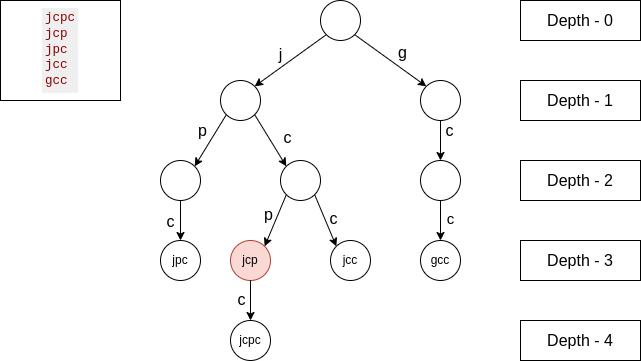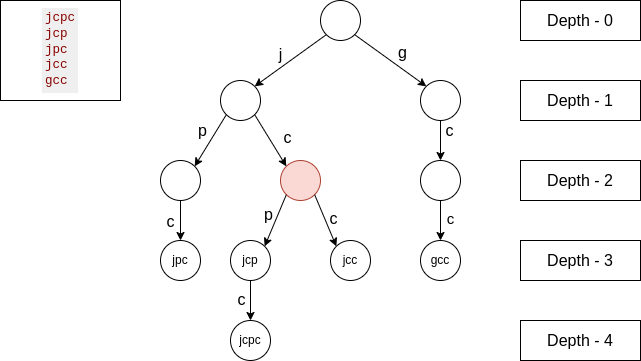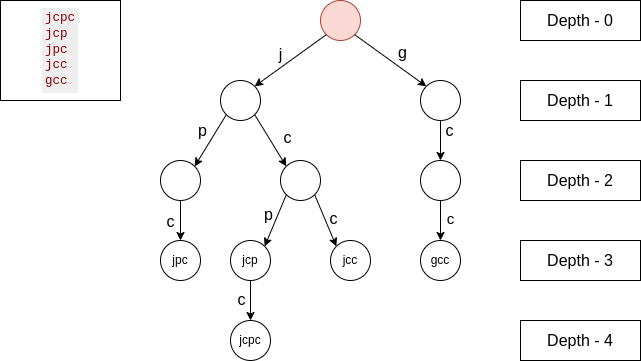[problem:451364A]
Idea: yazan_istatiyeh, prepared: noomaK
This problem was our way of saying hi:)
To solve the problem you can keep increasing n until it is divisible by k, this is a linear solution.
A constant solution is to find how much we need to add to n to make it divisible by k, so the solution becomes $$$x + k - (x \pmod k)$$$, or $$$(n / k + 1) * k$$$ taking advantage of integer (floor) division.
#include "bits/stdc++.h"
using namespace std;
typedef long long ll;
int main() {
ios::sync_with_stdio(0);
cin.tie(0);
int q;
cin >> q;
while (q--) {
int x, k;
cin >> x >> k;
cout << (x + (k - x % k)) << '\n';
}
}
[problem:451364B]
Idea: DeadPixel99, prepared: noomaK
[problem:451364C]
Idea: noomaK, prepared: noomaK
[problem:451364D]
Idea: noomaK, prepared: noomaK
[problem:451364E]
Idea: noomaK, prepared: yazan_istatiyeh
Connecting and disconnecting roads gives a hint to using DSU, also finding the minimum number of coins gives a hint to binary search.
The first thing we notice is that blocking all roads would be valid, now to construct the solution, we will use binary search on the answer, it will work because if we blocked all roads that cost $$$X$$$ or less and it was valid, blocking all roads that cost $$$X + 1$$$ or less would be valid too.
So for each midpoint in the binary search, we can check if the current cost is valid or not by connecting components in DSU when an edge cost is more than the current cost we are checking (the more we block the better, so we should not be choosy about what to block or not, if we can block a road then it is either would not change anything or it would disconnect two cities from each other), after that, we can check for connectivity for all forbidden pairs (cities in feuds), if all pairs were disconnected, then the current cost is valid and we search for less, if not, the current cost is invalid and we should search for a higher cost.
Solution Complexity: $$$O(log_2(10 ^ 9) * m * log_2(n))$$$
#include "bits/stdc++.h"
using namespace std;
typedef long long ll;
class UnionFind {
private:
vector<int> p, rank, setSize;
int numSets;
public:
UnionFind(int N) {
p.assign(N, 0);
for (int i = 0; i < N; i++) {
p[i] = i;
}
rank.assign(N, 0);
setSize.assign(N, 1);
numSets = N;
}
int findSet(int i) {
return (p[i] == i) ? i : (p[i] = findSet(p[i]));
}
bool isSameSet(int i, int j) {
return findSet(i) == findSet(j);
}
int numDisjointSets() {
return numSets;
}
int sizeOfSet(int i) {
return setSize[findSet(i)];
}
void unionSet(int i, int j) {
if (isSameSet(i, j)) return;
int x = findSet(i), y = findSet(j);
if (rank[x] > rank[y]) swap(x, y);
p[x] = y;
if (rank[x] == rank[y]) rank[y]++;
setSize[y] += setSize[x];
numSets--;
}
};
struct Edge {
int u, v, t;
Edge(int u, int v, int t): u(u), v(v), t(t) {}
};
int main() {
ios::sync_with_stdio(0);
cin.tie(0);
int n, m, k;
cin >> n >> m >> k;
vector<Edge> edges;
for (int i = 0; i < m; i++) {
int u, v, t;
cin >> u >> v >> t;
u--, v--;
edges.emplace_back(u, v, t);
}
vector<pair<int, int>> feuds(k);
for (auto &[u, v]: feuds) {
cin >> u >> v;
u--, v--;
}
auto check = [&](int x) {
UnionFind dsu(n);
for (auto [u, v, t]: edges) {
if (t > x) dsu.unionSet(u, v);
}
for (auto [u, v]: feuds) {
if (dsu.isSameSet(u, v)) {
return false;
}
}
return true;
};
int l = 0, r = 1e9, ans = 1e9;
while (l <= r) {
int mid = l + (r - l) / 2;
if (check(mid)) {
ans = mid;
r = mid - 1;
} else {
l = mid + 1;
}
}
cout << ans;
}
[problem:451364F]
Idea: yazan_istatiyeh & noomaK, prepared: yazan_istatiyeh
The first thing we notice is that $$$cost(s, t) = |s| + |t| - 2 * LCP(s, t)$$$, where $$$|s|$$$ is the length of the string $$$s$$$, and $$$LCP(s, t)$$$ is the longest common prefix between s and t.
Calculating |s| and |t| for all pairs is trivial since each string would be in a pair $$$2 * n - 1$$$ times, we can add $$$(2 * n - 1) * |s|$$$ to our answer, for each string.
Now we have to calculate LCP over all pairs, this can be done using trie & dfs.
We can see that on the trie, the LCP between 2 strings is the LCA (lowest common ancestor) between them, we can use this fact to calculate our answer, so for each node in the trie (looking at it from the bottom to the top), some strings would meet, these strings' LCP will be the node's depth, the following illustration of the example will explain more, we will try to calculate the total LCP for it.

In a trie, (hypothetically) each node has 26 edges, in the highlighted node above, one string ends on it and there is one string coming from a node, so we will add $$$countOnNode * countFromEdge * nodeDepth$$$ to our total LCP, which is $$$1 * 1 * 3 = 3$$$, where node depth is actually the between all strings meeting on that node.

In the new highlighted node, from an edge, we have 2 strings, from another edge we have 1 string, all other edges have 0 strings. So we will add to the total LCP the following, $$$cntFromFirst_edge * countFromSecondEdge * nodeDepth$$$, which is $$$2 * 1 * 2$$$.

In the new highlighted node, from an edge we have 1 string, from another edge we have 3 strings, so we will add $$$1 * 3 * 1$$$ to the total LCP.

In the new highlighted node, which is the root that has $$$depth = 0$$$, from an edge we have 1 string, from another edge we have 4 strings, so we will add $$$1 * 4 * 0$$$ to the total LCP.
Now our total answer is $$$3 + 4 + 3 + 0 = 10$$$, which is the total LCP, but for unordered pairs, so we will multiply it by 2 to get it for ordered pairs, also, we must not forget about the pairs of strings with itself, which has $$$LCP = |s|$$$, so we must add the strings lengths to the total LCP.
Now we have to multiply the total LCP by 2 from our original equation $$$|s| + |t| - 2 * LCP(s, t)$$$.
So finally we will subtract the total LCP from our sum of lengths, and we will get the answer:)
The solution uses trie with pointers, by yazan_istatiyeh:
#include "bits/stdc++.h"
using namespace std;
typedef long long ll;
class Trie {
private:
struct Node {
char alphabet;
bool exist; // or end of word, or count of words
int cnt;
vector<Node*> child;
Node(char a): alphabet(a), exist(false), cnt(0) {
child.assign(26, NULL);
}
};
Node* root;
public:
Trie() {
root = new Node('!');
}
void insert(string word) {
Node* cur = root;
for (int i = 0; i < (int) word.size(); i++) {
int alphaNum = word[i] - 'a';
if (cur -> child[alphaNum] == NULL) {
cur -> child[alphaNum] = new Node(word[i]);
}
cur = cur -> child[alphaNum];
}
cur -> exist = true;
}
ll getAns() {
function<void(Node*)> dfs = [&](Node* node) {
node->cnt = node->exist;
for (auto next: node->child) {
if (next != NULL) {
dfs(next);
node->cnt += next->cnt;
}
}
};
dfs(root);
ll ret = 0;
function<void(Node*, int)> calc = [&](Node* node, int depth) {
ll pre = 0;
for (int i = 0; i < 26; i++) {
if (node->child[i] == NULL) continue;
auto &next = node->child[i];
ret += node->exist * depth * next->cnt;
ret += pre * depth * next->cnt;
pre += next->cnt;
calc(next, depth + 1);
}
};
calc(root, 0);
return ret;
}
};
int main() {
ios::sync_with_stdio(0);
cin.tie(0);
int n;
cin >> n;
Trie trie;
ll ans = 0;
for (int i = 0; i < n; i++) {
string s;
cin >> s;
trie.insert(s);
ans += (2ll * n - 2) * s.size();
}
ans -= trie.getAns() * 4;
cout << ans;
}
This solution uses trie with normal arrays, by noomaK:
#include "bits/stdc++.h"
using namespace std;
typedef long long ll;
const int N = 1e6 + 1;
const int K = 26;
int trie[N + 2][K];
int sub[N + 5];
int tc;
void insert(const string &s) {
int n = s.size();
int root = 0;
for (int i = 0; i < n; ++i) {
int j = s[i] - 'a';
if (!trie[root][j]) {
trie[root][j] = ++tc;
}
root = trie[root][j];
}
sub[root] += 1;
}
ll ans;
string cr;
void dfs(int u, int d = 0) {
ll cur = sub[u], sum = 0;
string t = cr;
for (int j = 0; j < 26; ++j) if (trie[u][j]) {
int v = trie[u][j];
dfs(v, d + 1);
sub[u] += sub[v];
sum += cur * sub[v];
cur += sub[v];
}
ans -= d * 4ll * sum;
}
void solve() {
int n;
cin >> n;
ans = tc = 0;
for (int i = 0; i < n; ++i) {
string s;
cin >> s;
insert(s);
ans += (n - 1) * 2ll * (int)s.size();
}
dfs(0);
cout << ans << '\n';
}
int main() {
ios::sync_with_stdio(false);
cin.tie(nullptr);
int t = 1;
// cin >> t;
while(t--) {
solve();
}
}
[problem:451364G]
Idea: noomaK, prepared: noomaK
What if there was only two numbers in the list?
Bézout's theorem
Do we need to check every subset of the list if there is more than 2 numbers ?
First, let's use Bézout's theorem or the extended Euclidean algorithm, to know that for any two numbers $$$x$$$ and $$$y$$$, we can reach any multiple of their $$$gcd$$$.
Now we can generalize this to see that we need a subset of our list with a $$$gcd$$$ that divides $$$k$$$ in our third query, but getting a subset with some $$$gcd$$$ isn't a trivial task.
We can prove that it's sufficient to just check for the $$$gcd$$$ of the whole list.
Why? Because let the $$$gcd$$$ for some subset be $$$g′$$$ and $$$g'$$$ divides $$$k$$$, and $$$g$$$ the $$$gcd$$$ of the list, we can see that $$$g$$$ is a divisor of $$$g′$$$ therefore $$$g$$$ also divides $$$k$$$.
Now we just need a way to get the $$$gcd$$$ of a changing list, we use some data structures like Segment Tree for example.
Time complexity $$$O(qlog_2(A)log_2(q))$$$, $$$A$$$ is the maximum number in the list.
#include "bits/stdc++.h"
using namespace std;
typedef long long ll;
#define deb(...) logger(#__VA_ARGS__, __VA_ARGS__)
template<typename ...Args>
void logger(string vars, Args&&... values) {
cout << vars << " = ";
string delim = "";
(..., (cout << delim << values, delim = ", "));
cout << '\n';
}
const int N = 2e5;
int tree[N * 2 + 2];
void up(int i, int x) {
for (tree[i += N] = x; i > 1; i >>= 1) {
tree[i >> 1] = gcd(tree[i], tree[i ^ 1]);
}
}
void solve() {
int q;
cin >> q;
map<int, int> last, freq;
for (int i = 0; i < q; ++i) {
int t, x;
cin >> t >> x;
if (t == 1) {
if (!last.count(x)) last[x] = i;
if (++freq[x] == 1) {
up(i, x);
}
} else if (t == 2) {
if (--freq[x] == 0) {
up(last[x], 0);
last.erase(x);
}
} else {
int g = tree[1];
if (g > 0 && x % g == 0) {
cout << "YES\n";
} else {
cout << "NO\n";
}
}
}
}
int main() {
ios::sync_with_stdio(false);
cin.tie(nullptr);
int t = 1;
// cin >> t;
while(t--) {
solve();
}
}





